Spring 2020 ECPY 302 Seminar Information and Themes
Section 01:
Hip Hop Culture: Popular Culture and Identity
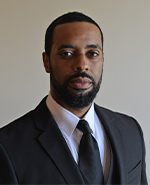
| Time: | Tuesday & Thursday, 1:00-2:15pm |
| Instructor: | Brandon McCormack |
| Advisor: | Eric Turner |
| Librarian: | Latisha Reynolds |
| Location: | BAB 232 |
Beats, Rhymes, and Life. Hip hop culture is a site for exploring a range of issues, including race, class, gender, sexuality, and religion. In this seminar, we will turn to hip hop culture, as perhaps the most well-known form of contemporary popular culture, asking how meaning-making, identity formation, and society and culture are created. Our goal is to learn to think critically about how popular culture, and hip hop in particular, both shape, and are shaped, by the interaction of the lived experiences of everyday people- especially those who live on the social and political margins. Engagement with popular culture offers possibilities for greater insights on how we understand, express, and negotiate who we are. You will explore how hip-hop as a form of art, culture, and expression provides a lens to help you understand your cultural context, beliefs, your self-expression, and your behaviors. This seminar will provide you with a structured opportunity to carry out an academic inquiry project of interest to you that relates to the course theme.
Section 02:
Emotional Intelligence: how do emotions shape my thinking, my decisions and my everyday life?
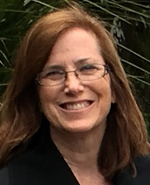
| Time: | Tuesday & Thursday, 9:30-10:45pm |
| Instructor: | Eileen Estes |
| Advisor: | Emily Spoden |
| Librarian: | Rob Detmering |
| Location: | ED 201 |
Do our emotions control us, or is it our job to control them? In this section, we will look at the role and power that emotions play in our everyday lives. We will look at emotions through the lens of emotional intelligence which refers to an individual’s ability to become aware of, and control, his or her feelings. You will have the opportunity to gain an understanding of your own emotional intelligence and learn multiple strategies for strengthening or “bridging” emotions when moving from one emotion to another. We will explore theories of emotional development and brain development as it pertains to emotional regulation and the impact of cultural influences on the acceptance/expression of emotions.
Key questions you will explore include: To what extent do our emotions influence our thinking? What impact do our emotions have on making decisions in regards to relationships, setting personal goals, career decisions, and coping with daily stressors? This seminar will provide you with a structured opportunity to carry out an academic inquiry project of interest to you that relates to the course theme.
Section 03:
Reality Check: Exploring What You Know and How You Know It
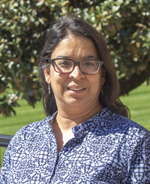
| Time: | Monday & Wednesday, 4:00-5:15pm |
| Instructor: | Nisha Gupta |
| Advisor: | Daniel Darland |
| Librarian: | Lidiya Grote |
| Location: | BAB 225 |
When you woke up this morning, the world was largely the same as when you went to sleep. You were still you; the room was the same one you went to sleep in. The outside world had not been rearranged. History was unchanged and the future remained unknowable. In other words, you woke up to reality. Is your reality the same as my reality? The more you look into this question the harder it becomes to understand it. This seminar will help you grapple with some age-old questions about life as you perceive it and the slippery nature of knowledge.
Some questions we will consider in this course:
- How do we know what we know?
- What is “normal?”
- How do I know what is real?
- What is the meaning of life?
- What am I doing with my life?
This seminar will help you explore basic concepts and tools for exploring how we understand the world around u. How do concepts such as implicit bias, fake news, staying woke, and reality checks work in our own understanding of ourselves relate to how we see reality? As you become more aware of how to understand reality, you can better use this knowledge to understand yourself. What are your ways of seeing reality and what the, and places you avoid? This seminar will provide you with a structured opportunity to carry out an academic inquiry project that interests you and is connected to the central concepts of the course theme.
Fall 2019 ECPY 302 Seminar Information and Themes
Section 01:
Leadership Lessons: Finding Yourself, Building Your Community, & Embracing Change
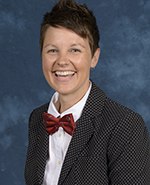
| Time: | Tuesday & Thursday, 1:00-2:15pm |
| Instructor: | Meg Hancock |
| Advisor: | Melissa Law-Penrose |
| Librarian: | Amber Willenborg |
| Location: | BAB 408 |
Change is one of the few certainties in life – it’s difficult, it takes time, it’s exciting, and it’s most certainly inevitable. College life is filled with moments of change from high school to college; from first- year to upper year; from moving from your hometown to a new place; from dorm-life to off campus. But change isn’t just about moving from one place to another or from one year to the next. Change is about personal growth, relationships with others, navigating experiences, and decision-making. The challenge is we often resist and fear change because we don’t know how to manage it. More importantly, we do not know how to change, or we do not trust we have the capability to lead both ourselves and others through change.
In this course, you will examine your own personal leadership (and followership!) style. How can knowing your style help you grow, build relationships, create your communities, and make decisions in the midst of change? You will focus on identifying personal values, strengths, personality tendencies, decision-making styles, competing commitments and the role of social groups. We will explore how we lead ourselves, empower others, and build communities of purpose and meaning. This seminar will provide you with a structured opportunity to carry out an academic inquiry project that relates to the course theme.
Section 02:
Walls: Portals, Perspectives and Pathways
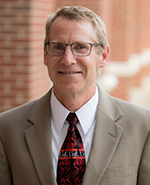
| Time: | Monday & Wednesday, 4:00-5:15pm |
| Instructor: | Mark French |
| Advisor: | Jessy Rosenberg |
| Librarian: | Rob Detmering |
| Location: | BAB 410B |
At first look, anyone may consider walls as nothing but simple structures with relatively minor purposes in our current times. A closer look reveals that walls play a pivotal role in formation of communities and even the existence of civilizations and the earliest identifiable social gatherings of people over 10,000 years ago.
In this course, we study walls in form and function – location and construction – purpose and achievement. Walls can serve to provide a defined space for people to gather for a common purpose, yet may also function to keep out the unknown, perceived hostile nature and uncertainty. With this is mind, we learn how walls can lead us to discover our individual interests, strengths and powers while knowing there is a place to rest within walls when needed.
We will look at our own daily lives and consider places and spaces that we consider our walled zones – whether these are places where we are inside the wall or places we see that may keep us out. And these walls may not be physical. Similar to the “invisible fence” used to keep a pet in a yard – we experience the same boundaries when traveling through our days. What are places you go to seek to go, and places you avoid?
Section 03:
College Life: Looking Backward to Move Forward
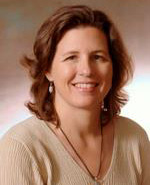
| Time: | Monday & Wednesday, 12:30-1:45pm |
| Instructor: | Amy Hirschy |
| Advisor: | Daniel Darland |
| Librarian: | Lidiya Grote |
| Location: | BAB 234 |
Did you have a lot of built up expectation about college life from family, friends and popular culture that turned out to not be true? Have you ever though that college might not be for you, or contemplated dropping out? Have you considered throwing a dart into a wheel of majors as means of picking yours? If you relate to any of these questions/statements this seminar might be a good fit for you.
This seminar will help you demystify college through exploration of historic and current examples of student experiences and examine ways in which higher education could be improved for you and for future students. We will explore topics/questions such as: What is the current status of colleges today? How can higher education and the student experience be improved? How do you make the most of your experience?
In addition to finding means of effectively navigating college life and ways to get the most out of your academic experience, you will engage in self-examination and reflective practices and hone your research and information literacy skills. Hope to see you there!
Spring 2019 ECPY 302 Seminar Information and Themes
Section 01:
Flourishing: How Positive Psychology Can Improve Academic Experiences
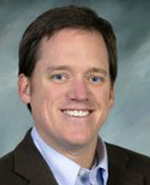
| Time: | Tuesday & Thursday, 2:30-3:45pm |
| Instructor: | Scott LaJoie |
| Advisor: | Jessica Newton |
| Librarian: | Lidiya Grote |
| Location: | BAB 410B |
Let’s face it: happiness and wellbeing are not words often used to describe the academic experience. College is filled with difficult assignments, boring lectures and readings, deadlines, negative feedback, and inter-personal challenges. Unfortunately, there is no promise that life after college will be better. In this class, we explore the world of Positive Psychology to learn how to improve our outlook, increase optimism and motivation, and find enjoyment in the little things of everyday life. Positive Psychology isn’t psycho-babble, self-help stuff you find in grocery store magazines; there is real science behind it, and we will study it. Key questions we’ll answer over the semester: Am I preventing myself from achieving my goals? How does one develop abilities to overcome challenges and obstacles in the future? Does happiness and wellbeing improve better intellectual performance, result from it, or both?
Questions that students’ might explore for inquiry projects include: How does the research on positive psychology help us to understand the challenges of being a college student? What are biological factors of positive psychology?
Section 02:
Music, The Universal Language:
Where Words Stop, Music Begins
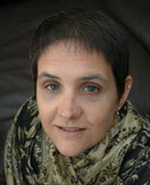
| Time: | Monday & Tuesday, 12:30-1:45pm |
| Instructor: | Kimcherie Lloyd |
| Advisor: | Eric Turner |
| Librarian: | Rob Detmering |
| Location: | BAB 410A |
Music has always occupied an integral place in the human narrative. It has often been said that music is a universal language, bringing people together like nothing else. Music can often be a voice for the silenced or voiceless. Without exception every movement in history has been represented through music from the “Marseillaise” sung by the revolutionaries during the French revolution, to “We are the World” produced to raise awareness and funding for African famine relief in 1985, to the American social media culture commentary in “This is America” by Childish Gambino.
The academic theme of this seminar will focus on music as representative of the many narratives within our culture. This seminar is aimed at students who enjoy learning about music and/or diverse cultures, as a way of exploring their personal learning and future trajectories. This course will provide a new perspective to the way the students hear music and view culture.
Questions that will be explored in this seminar may include:
- Which music or musicians have resonated for you? Why?
- What are their stories and what does their work say to you?
- What are the power dynamics at play in a song when considering privilege and empowerment?
- What are the stories behind the music that most resonates for you?
- How can we learn about other cultures through their music?
- How do artists combine research with creativity when they create?
This seminar will provide students with an opportunity to carry out an inquiry project of their own design on the theme of cultural representation through music or the universal language of music and will be focused heavily on the music that resonates most profoundly with each individual student.
Section 03:
College Life: Looking Backward to Move Forward

| Time: | Tuesday & Thursday, 9:30-10:45am |
| Instructor: | Amy Hirschy |
| Advisor: | Marissa Williams |
| Librarian: | Amber Willenborg |
| Location: | ED 151 |
Are you looking to get the most out of your college experience? College life is very different today, when compared to prior generations. In this seminar, you will explore historical examples of student experiences at colleges and universities and examine ways that higher education can be improved for future students. You will reflect on who and what has influenced your views on college life (like family, friends, popular culture, leaders, etc.) and compare those images to your own realities as a college student. By the end of this course, you should develop a strategic map to help you navigate your path and get the most out of your time in college.
Central questions of this seminar include: What is the current status of colleges today? What does it mean for future generations? How can higher education be improved? How can the student experience be improved? Additionally, you will complete an inquiry project on a current issue in higher education that relates to your particular interests. Examples of possible inquiry topics include: higher education and politics, the role of college athletics, why college costs so much, campus crisis resources, role of student organizations, free speech on campuses, diversity and inclusion in college today, or campus architecture and design.
Section 01:
Thinking Community: Thinking Change

| Time: | Monday & Wednesday, 11:00-12:15pm |
| Instructor: | Shelley Thomas |
| Advisor: | Marissa Williams |
| Librarian: | Amber Willenborg |
| Location: | ED 248 |
In this section, students will explore the concepts of community and social change. We live in a world where change is occurring at a rapid pace and it’s occurring everywhere. So much so, that today’s generation of students want to be part of this change and make a difference in a meaningful way. How can engaging in communities facilitate this generation’s desire to navigate and impact change in the midst of seeming chaos? In this seminar, you will learn how to examine real world phenomena and events such as housing access, mass criminalization, food insecurity, environmental justice, and health equity. Students will think about the communities they belong to and consider ways to enact change within them. Through the exploration of concepts such as community, culture, and action, this seminar will provide an opportunity for students to design and carry out their own inquiry project on an issue they would like to change or influence. Some questions that will guide students in this seminar include:
- Which communities do I belong to?
- What interests me about social change?
- What personal values or past experiences have prepared me to facilitate change?
- How can my interests and skills inform decisions about how I will make a difference in a focused area of my choice?
- How can I connect with others to make change happen?
Section 02:
Who gets to tell your story? Strategies for Research, Creativity, and Exploration
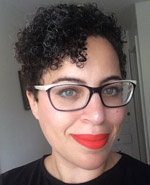
| Time: | Tuesday & Thursday, 4:00-5:15pm |
| Instructor: | Kiki Petrosino |
| Advisor: | Eric Turner |
| Librarian: | Rob Detmering |
| Location: | BAB 234 |
The academic theme of this seminar will focus on storytelling as a powerful and empowering intellectual practice. In many fields, the ability to frame a narrative--whether your own, your community's, or a client's--is prized for the ways it allows you to make connections between seemingly dissimilar ideas. Storytelling also empowers you to think about how you relate to the systems around you. Who are you? How did you get here? What events (historical, cultural, biographical) had to occur for you to arrive here, at UofL, and where will you go, not just after this seminar, but beyond? We'll anchor our discussions by exploring one of the great Louisville stories: the expedition of Lewis & Clark, 1803-1806. By reading portions of the field journals and by examining works of art and literature inspired by the journey, we'll consider the techniques that artists and thinkers utilize in reimagining this incredible real-life adventure. Students will learn to recognize narrative practices and patterns within texts and experiment with these in their own storytelling practices.
Key questions you will explore include:
- What distinguishes narrative from other forms of writing or speaking?
- What are the differences between primary and secondary source documents?
- What power dynamics become evident in a story when we consider the issue of who is "allowed" or enabled to speak?
- Whose stories are most visible (or audible) in the American tales with which we are most familiar, and are there other voices we'd like to hear?
- How do artists combine research with creativity in order to refresh and reimagine familiar stories?
- What aspects of storytelling might you utilize in framing the narrative of your own life and intellectual development?
- This seminar will provide students with an opportunity to carry out an inquiry project of their own design on the theme of storytelling.
Section 01:
Generation Z:
Who Am I and How Do I Communicate?
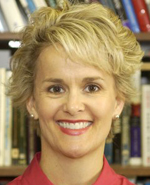
| Time: | Monday & Wednesday, 2:00-3:15pm |
| Instructor: | Mary Ashlock |
| Advisor: | Katie Adamchik |
| Librarian: | Rob Detmering |
| Location: | ED 122 |
The academic theme of this section will focus on Generation Z – a label for individuals born from the mid-1990s to the present. Students will examine the strengths and challenges of individuals born during this timeframe and compare this to earlier generations such as Millennials, Baby Boomers and the Greatest Generation. The focus on how Generation Z individuals interact with technology and in face-to-face contexts with others will be carried throughout the course. Implications of Generation Z as a label will also invite learners to inquire about why generational labels exist and their effects on communication.
Some of the questions that will guide students in their approaches in how they communicate: What distinguishes individuals in Generation Z from others? How do these individuals approach and interact with others? What is the role, if any, that Generation Z plays in college and in the workplace? How do we create a sense of belonging and community engagement for Generation Z individuals? Learners in this course will discuss and evaluate these questions and more, taking insights from communication models and concepts including social and other interactive media. This seminar will provide support for students to design and carry their own inquiry project on Generation Z.
Section 02:
Emotional Intelligence:
How do emotions shape my thinking, my decisions and my everyday life?

| Time: | Tuesday & Thursday, 4:00-5:15pm |
| Instructor: | Eileen Estes |
| Advisor: | Katie Adamchik |
| Librarian: | Samantha McClellan |
| Location: | ED 124 |
In this section, students will look at the role and power that emotions play in their everyday lives. They will look at emotions through the lens of emotional intelligence which refers to an individual’s ability to become aware of, and control, his or her feelings. Learners will have the opportunity to gain an understanding of their own emotional intelligence and learn multiple strategies for strengthening or “bridging” emotions when moving from one emotion to another. Students will explore theories of emotional development and brain development as it pertains to emotional regulation and the impact of cultural influences on the acceptance/expression of emotions.
Key questions students will explore include: To what extent do our emotions influence our thinking? What impact do our emotions have on making decisions in regards to relationships, setting personal goals, career decisions, and coping with daily stressors? This seminar will provide an opportunity for students to design and carry out their own inquiry project on emotions.

